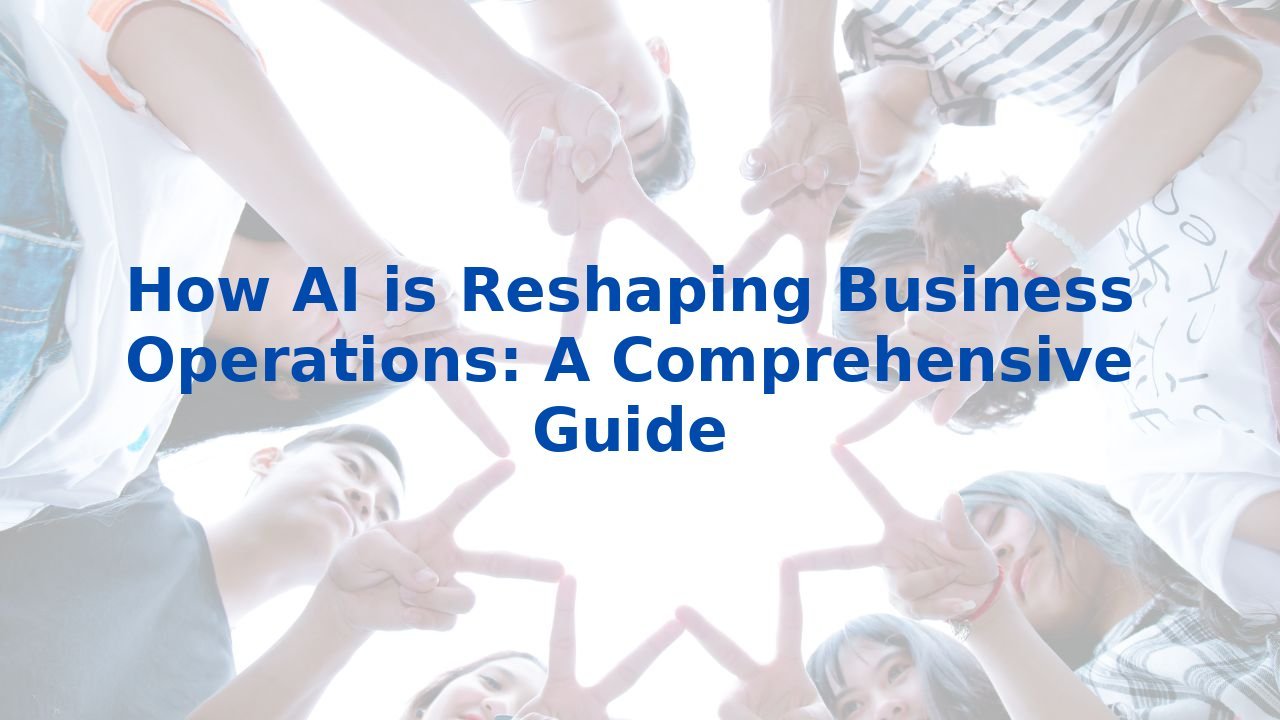How AI is Reshaping Business Operations: A Comprehensive Guide
How AI is Reshaping Business Operations: A Comprehensive Guide
In an era defined by rapid technological advancements, businesses stand at a pivotal crossroad where efficiency and innovation reign supreme. Among the most transformative forces is Artificial Intelligence (AI). By embedding AI within core business processes, organizations not only enhance operational efficiency but also drive a culture of innovation. This comprehensive guide explores how AI can reshape business operations, underscoring the significant benefits it brings to organizations.
Automation and Operational Efficiency
AI’s prowess in automation is one of its most compelling attributes. By meticulously analyzing workflows, AI can pinpoint bottlenecks, redundancies, and inefficiencies that impede productivity. This insight allows organizations to automate repetitive, rule-based tasks, liberating human resources for more strategic initiatives. Think about mundane tasks like data entry or invoice processing. With AI-powered solutions in place, businesses witness reduced human error and a significant acceleration of workflows.
Advanced Data Analytics
In the age of big data, the ability to swiftly analyze vast amounts of information is invaluable. Here, AI shines with its advanced machine learning algorithms. These tools not only uncover patterns and trends but also provide predictive analytics that help organizations strategize effectively. The results? Optimized decision-making, enhanced demand forecasting, and more efficient inventory management practices that ultimately contribute to a healthier bottom line.
Customer Experience Personalization
As competition intensifies, delivering an exceptional customer experience has never been more critical. AI enables businesses to achieve this by offering personalized interactions. By delving deep into customer data—such as purchasing history and browsing behavior—AI crafts tailored product recommendations and marketing messages. This data-driven personalization nurtures customer satisfaction and fosters enduring loyalty.
Security and Risk Management
With increasing data vulnerabilities, robust security measures are non-negotiable. AI takes center stage here, functioning as a proactive guardian against cyber threats. By swiftly detecting anomalies and suspicious behaviors, AI systems bolster risk management protocols. This not only mitigates the risk of data breaches but safeguards a company’s reputation in the marketplace.
Innovation and Product Development
Innovation is the heartbeat of any thriving organization. AI accelerates this process. By optimizing everything from design to production, businesses can adapt to market changes with remarkable agility. Whether it's refining development cycles or accurately predicting market demand, AI fosters a robust environment for innovation.
Benefits of Training Employees for AI
However, technology alone won't deliver optimal results; the human element remains crucial. To fully harness the transformative potential of AI, organizations must invest in training their employees. Understanding AI algorithms, mastering data analysis techniques, and interpreting AI-generated insights are vital skills in today’s workforce. Training not only streamlines AI integration but also empowers employees to innovate and make informed decisions, ultimately cultivating a culture of continuous improvement.
Process Optimization
AI doesn’t stop at automation; it enhances overall process optimization. By meticulously scrutinizing workflows, AI enables businesses to identify and rectify inefficiencies. The result? Streamlined processes that accelerate task completion, cut costs, and create a lean operational framework—essential attributes for any competitive business today.
Quality Control and Assurance
Quality assurance demands constant vigilance. AI integrates seamlessly into quality control systems, utilizing real-time process monitoring to detect defects or discrepancies early on. This level of oversight not only elevates product quality but also minimizes waste, preserving the integrity and reputation of the brand.
Supply Chain Management
The intricacies of supply chain management require not just precision but adaptability. AI plays a pivotal role here as well, leveraging both historical and real-time data to forecast demand fluctuations and optimize inventory management. This intelligent analysis leads to reduced delays, minimized carrying costs, and a far more agile supply chain ecosystem.
Conclusion
AI stands at the forefront of a transformative shift in business operations. Its ability to enhance efficiency, foster innovation, and improve overall performance is reshaping how companies navigate their competitive environments. By embracing AI across various processes, from automation to customer personalization, and equipping employees with essential skills for its implementation, organizations can tap into unprecedented opportunities.
As we move forward, the potential for AI to revolutionize business systems will only grow. It's not just an option but a necessity for any organization aiming to thrive in a dynamic market landscape. In this age of digital transformation, AI isn't just changing the game; it's redefining it.



